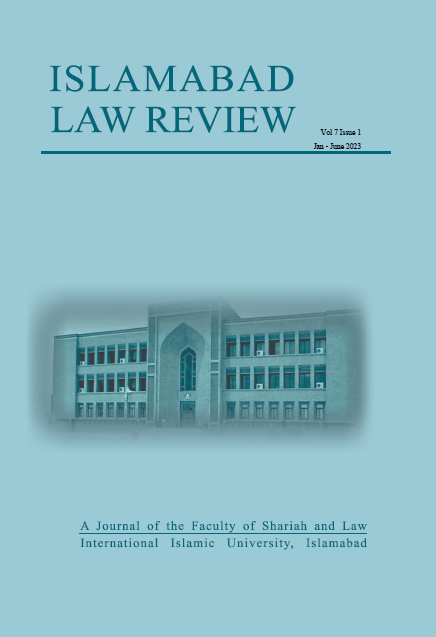Legal Regime Governing Bottled Drinking Water Companies in Pakistan: An Analysis in the Light of International Standards
Abstract
Pakistani legislation is inadequate on bottled drinking water companies, which makes it difficult to hold such companies accountable for losses incurred due to the provision of unsafe drinking water. This research aims to highlight the shortcomings in Pakistani legislation regarding clean drinking water. It focuses on the need to analyze local standards in comparison with international standards. The significant issues for inquiry include; how the incorporation of international standards for drinking water in Pakistani legislation would ensure the quality of bottled water? What steps need to be taken to make Pakistani law compatible with international standards? The qualitative research methodology is adopted for this research. Main findings suggest, hurdles in combating the clean drinking water issues include the feeble mechanism of finding the real source of water which causes waterborne diseases and the weak governmental regulations on water distribution systems. The research concludes that the legal framework for the protection of consumer rights is already available in Pakistan, but the right to clean and safe drinking water still needs to be acknowledged. The government needs to take concrete steps to prohibit corporations from misusing underground water sources by ensuring the implementation of national and international drinking water quality standards.


